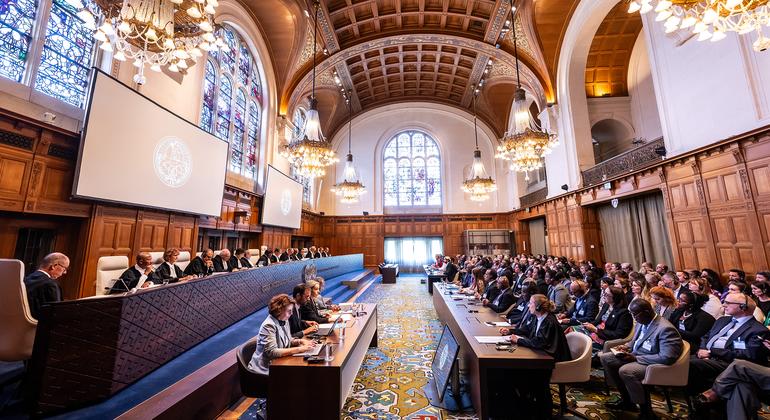Here’s the translation to American English:
The International Court of Justice (ICJ) has issued a significant ruling that establishes the responsibility of States to act diligently in the fight against climate change. This ruling comes in response to a request from the UN General Assembly in April 2023, which sought clarity on the legal obligations of countries to protect the climate system from emissions generated by human activity and their repercussions.
The court emphasized that nations must implement measures that are “appropriate,” “coherent,” “rapid,” and “sustainable” for the reduction of greenhouse gas emissions. It stresses that the lack of scientific certainty should not be an argument for inaction. This ruling implies that the obligations of States extend beyond multilateral agreements, being grounded in customary international law, which binds all nations, regardless of their participation in climate treaties, to act.
Additionally, the ICJ has highlighted the need for international cooperation in areas such as financing, technology transfer, and support for the most vulnerable nations, which are disproportionately affected by global warming. This collaboration is essential, particularly for small island states and future generations who will face significant environmental challenges.
Although the ICJ’s advisory opinions are not legally binding, their moral weight can influence other national and international courts. Currently, there are nearly 3,000 active climate lawsuits in about 60 countries, and this ruling is expected to strengthen legal efforts in the environmental arena.
The issuance of this opinion took place in a highly participatory context, with public hearings that included 96 States and eleven international organizations that presented statements.
The release of this ruling coincides with data indicating that, for the first time, investment in clean energy has surpassed that in fossil fuels. António Guterres, UN Secretary-General, has stated that the future of clean energy is an irreversible fact and has urged an acceleration in the transition to renewable sources. Guterres highlighted that the costs associated with solar and wind energy have fallen below those of fossil fuels, marking a significant shift in the global energy economy.
The Secretary-General emphasizes that clean energies not only address climate change but also promote economic development, create jobs, and ensure energy stability. In his view, unlike oil and gas, which generate volatility and geopolitical dependence, resources like the sun and wind offer a constant and abundant supply.
Source: MiMub in Spanish











